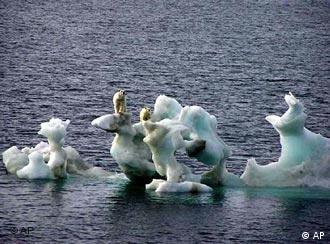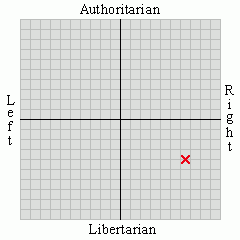Science is supposed to be objective. Of course as a human endeavour it is imperfect, and so will always be subjective, but as such it should be a recognised hazard that scientists try to minimise.
That is where the study of climate has gone so wrong.

A picture which illustrates where climate study has lost impartiality. Taken because of pretty ice formations, it was used to ‘prove’ the threat of ice melting to polar bears. The bears photographed were in no danger and the evidence of any reduction in polar bear numbers is disputed, where such disputes are allowed. © Amanda Byrd
In today’s Daily Telegraph there is a comment article about a committee which refuses to allow one of the world authorities on his subject because he does not agree with their pre-determined conclusion. Dr Mitchell Taylor, an expert on polar bears, believes that polar bear numbers worldwide are increasing, and that Arctic melting is caused by influences other than the greenhouse effect.
So he cannot attend a UN group for which he is well-qualified and has funding, because his views “counter to human-induced climate change are extremely unhelpful” and his signing a letter alongside 500 other sceptics was “inconsistent with the position taken by the PBSG [Polar Bear Specialist Group]”. So it appears that the PBSG has determined its position before even sitting or discussing any evidence, remarkable efficiency in a publically-funded body.
Another polar bear picture, just because they’re cute; vicious predators of course, but cute ones © Steve Amstrup, US Fish and Wildlife Service
It is interesting to note how anthropogenic climate change believers – we cannot say global warming since evidence has shown that much of the world started to cool - try to demonise those that are more sceptical by transferring their own faults onto those with whom they disagree.
First is of course language, using the term ‘denier’ not because it is accurate (many so-called deniers are doubters like I am) but because being a sceptic is supposed to be a good thing in science, but a denier is not only to be thought of alongside holocaust deniers but also too certain for good science, which is questioning. In fact those claiming that the increased level of greenhouse effect of 0.28% has a significant effect on climate are themselves so certain that they will not accept debate, as this article shows.
The other demonising is to claim that ‘deniers’ are paid by the oil industry. Of course a few might have taken oil-industry funding, after all the oil industry funds much geological research which can include palaeoclimatology (study of pre-historic climate). However many have not, and there is far, far more money (hundreds of times as much) being spent on climate and atmospheric research by organisations that have already decided that humans are harming the climate than by oil companies. Not only that but many studies in other fields work on the assumption that humans cause climate change, because funding is easier to obtain if the application makes such a connection, even if completely irrelevant. The climate panic lobby has been bought, so they assume that deniers have also.
As any economist will know, incentives are far more persuasive and insidious than most other people recognise. In this case the incentives are very strong, not only positive to encourage research to support climate concern but negative to suppress any challenge. The case of Mr Taylor is not unique; researchers have found much more serious consequences of questioning the orthodoxy, and often it is impossible to publish in peer-review publications papers which do not presume anthropogenic climate change.
Yet what is science but the questioning of orthodoxy? How can we be certain of any theory if it has never been tested by the doubters?
Variation and competition are the driving forces of research as they are of business and evolution. Evolution is itself a strong theory partly because of research to answer challenges from religious fundamentalists. We can be confident that the dinosaurs probably died out due to meteor impact thanks to to the challenges of Charles Officer and Charles Drake, two well-known palaeontologists who believed in a different theory, so constantly challenged the orthodox belief. How can we have any confidence that human activity is causing climate change, when no challenge is allowed? That this is so obvious in a UN group reporting in the lead up to the climate conference in Copenhagen demonstrates that UN reports cannot be assumed to be scientific.
That is the science. One day I will post my ruminations on the politics of climate change.





1 comments:
Great post Richard.
I've had enough of this now, so I spent the best part of the weekend writing out a lengthy blog explaining why I'm a sceptic myself:
The Minority Report: Why I am a Climate Sceptic
Post a Comment